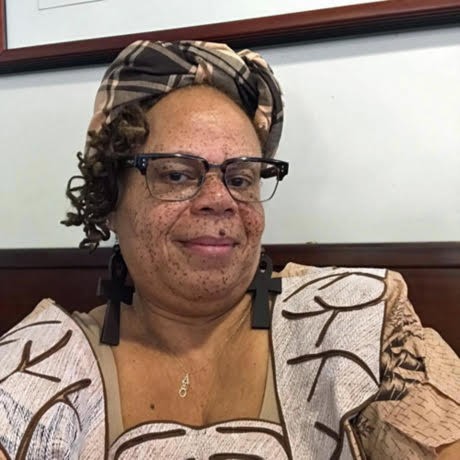Episode 1: Everybody can be a mystic | A conversation with Therese Taylor-Stinson
The founder of the Spiritual Directors of Color Network talks about the importance of contemplative spirituality to social change.

“So that contemplation can be whole, it must consist of both inward solitude and reflection, and an outward response to the situations in which we find ourselves present and awake."
In this very first episode of Contemplating Now, I talk to Therese Taylor-Stinson about the origins of the Spiritual Directors of Color Network, an international, ecumenical/interfaith association of persons of color with a ministry of spiritual accompaniment. We also discuss the limitations of contemplative language, the connection between activism and mysticism, and how we can all be mystics: “I think everybody can be a mystic,” Therese says. “Mystic means you’re living with a certain amount of uncertainty.”
I met Therese when we interviewed her on the Encountering Silence podcast in 2019, and again when we were both a part of the 2019 Wild Goose Festival. She is the co-editor of Embodied Spirits: Stories of Spiritual Directors of Color and the editor of Ain’t Gonna Let Nobody Turn Me Around — Stories of Contemplation and Justice. She is an ordained deacon and elder in the Presbyterian Church (PCUSA), a lay pastoral caregiver, and a graduate of and an associate faculty member of the Shalem Institute for Spiritual Formation, where she previously served as a member of the board. A native of Washington DC, she now lives in Maryland. Her ministry, like her books, explores the intersection of contemplative spirituality, the ongoing struggle for social justice, and the dismantling of racism.





